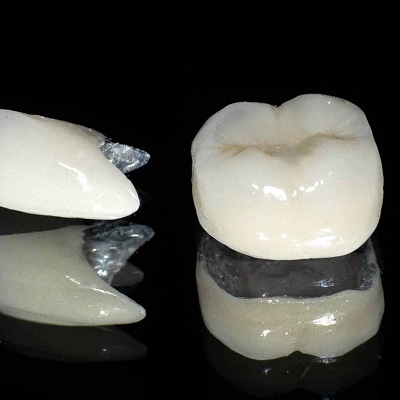
Dental caps protect and improve fractured or decaying teeth. Moreover, despite a cover, the tooth below can get infected. Therefore, recognising an infection under a crown helps obtain treatment quickly and prevent subsequent issues. Therefore, this blog post will discuss in detail How You Know If A Tooth Under A Crown Is Infected.
Working Dental Crowns and Tooth Infections
A crown restores a broken or decayed tooth’s shape, size, strength, and look. Among other materials, crowns can be porcelain, metal, resin, or clay. Therefore, they usually Prevent weak teeth from breaking. Moreover, they fix a broken or worn tooth and hold a large filling over it. Further, they help a toothbrush stay and hide a misshaped or discoloured tooth by surrounding a tooth implant.
Factors Causing Crown Infection :
- If the crown doesn’t fit properly, germs can develop rot between the crown and tooth.
- Over time, the crown-tooth seal might break down, letting bacteria in that can cause sickness.
- If you don’t care for your teeth and gums, gum disease can spread to the tooth under the crown.
- Moreover, infected tissue may remain if the tooth underwent a root canal before the crown.
- Damage to the crown or tooth underneath it might let bacteria in and cause sickness.
How Do You Know If A Tooth Under A Crown Is Infected?
Early detection of an infection allows for prompt treatment and avoidance of larger dental issues. Therefore, if you are worried How Do You Know If A Tooth Under A Crown Is Infected, the following signs can help you.
- Persistent Pain: Pain that won’t go away indicates an infection. Therefore, a throbbing or pulsed pain may indicate an abscess or severe infection.
- Sensitivity and Pressure: Sensitivity is an indicator of illness. Therefore, slight increases indicate illness, and pain when biting or pressing on the crown indicates infection or inflammation.
- Pain and swelling: Swollen gums surrounding the crown may indicate an infection.
- Redness: Crown gums are often red or inflamed.
- Bad breath or taste: You may have a bacterial infection if you brush and floss daily but still have terrible breath.
- The Crown Feels Loose or Wavy: Decay or sickness below may cause this.
- Getting rid of pus: Crown or gum line pus indicates an abscess requiring immediate dental attention.
Consultation with Dentists:
If you have any of the aforementioned symptoms, see your dentist immediately. Moreover, the dentist can detect an infection under a crown this way:
- Visual Examination: The dentist will check the crown and gum tissue for disease, decay, and damage.
- X-rays: Dental X-rays reveal hidden issues. They may have cysts, cavities under the crown, or tooth bone loss.
- Cold and heat tests: Applying cold or hot pressure to a tooth can reveal issues and assess its health.
- Pulp Vitality Test: Electric: This test evaluates tooth pulp tissue for infection and nerve damage.
Treatment Options for Infected Crown Teeth
An infected tooth under a crown must be treated immediately to save the tooth and prevent infection. Therefore, options for treatment include:
Root Canal Therapy: This includes taking out infected pulp tissue. Moreover, it also helps clean and sanitize the root tubes and seal them to keep infections away.
Crown Replacement: After a root canal, a new crown may be required to fit and seal. Therefore, the crown may need to be removed to remedy the issue.
Antibiotics: Antibiotics will help to treat severe gum infections and other causes.
Last Resort: Tooth extraction may be necessary if the tooth is broken or infected too badly to be maintained. Also, a dental implant or bridge can also be used to replace the missing tooth.
How to Prevent Dental Crown Infection
Prevent crown infections with these tips:
Maintain Dental Hygiene: Brush twice a day using fluoride toothpaste.
Regular Checkups: Regular dental cleanings and checkups help detect issues early.
Professional Cleaning: Dentist cleanings remove tartar and plaque that brushing and flossing can’t.
Avoid Hard Foods: Avoid eating hard foods that can harm the crown and let bacteria in.
Fix Issues Immediately: See a dentist immediately if you notice crown troubles or infection.
Final Thoughts:
Infected teeth under crowns are serious dental problems. Therefore, you should get treatment immediately. Knowing the indications, causes, and remedies will assist you in resolving the problem and maintaining your dental fitness. Further, avoiding infections and changing lifestyles can help. Also, dental crowns require common dental examinations, enamel care, and rapid motion. Therefore, you must visit your dentist often.
Book your appointment with dentists at Royal Cosmetic Surgery-PK for the complete check-up and treatment options for your dental issues.






